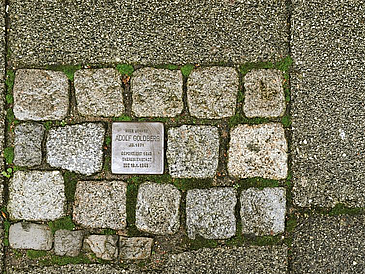On January 27, 1945, red army soldiers liberated the inmates of the concentration camp in Auschwitz. Since 1996, all over Germany this date has been a day of remembrance for the victims of the Nazi terror. This year, the day of remembrance will be marked by two lectures organized by the Faculty of Biology/Chemistry. So that everyone at the University will be able to attend, the time after 4.00 pm has been declared Dies Academicus.
Forced labor for the German war machine
“The concentration camp Auschwitz-Monowitz: Slave labor for the IG Farben factory” is the title of the lecture that will be delivered by Dr. Florian Schmaltz. He will focus on the role played by the IG Farben factory in Aufschwitz, which at that time was the largest chemical works in Europe for the production of fuels, synthetic rubber, and plastics. Cooperation between the company’s management and the SS extended to the actual operation of the concentration camp. The system of forced labor developed in Aufschwitz was copied elsewhere and became a model for the German war machine. The lecture deals with the working conditions in the slave labor camp, resistance among its prisoners, and the number of deaths. Dr. Florian Schmaltz is director of the research program “History of the Max Planck Society” at the Max Planck Institute for Science History in Berlin. The lecture begins at 4.00 pm in the GW1 auditorium building (opposite Universum) and everyone who wants to is cordially invited to attend.
The role of biology in National Socialism
This will be followed by the second lecture titled “Science and/as racism – biology in National Socialism” held by Professor Thomas Potthast, a biologist and philosopher who is also lead investigator at the International Center for Ethics in the Sciences (IZEW) at the University of Tuebingen. He will talk about the role of biology as a source of legitimacy for the racist ideology which was central to the National Socialist worldview. In so doing he will illustrate that the clear continuity of racial biology prior to and following the Nazi period followed a specific pattern of Nazi biology. Potthast is Professor for Ethics and the Theory and History of Sciences at the University of Tuebingen since 2012. He is also Chairman of the University of Tuebingen’s council for sustainable development. The lecture will finish at approx. 17.45, and it is likewise open to the public.
If you would like to have more information, please contact:
University of Bremen
Prof.Dr.ThomasHoffmeister
Vice Rector for Studies and Education
e-mail kon2protect me ?!uni-bremenprotect me ?!.de

